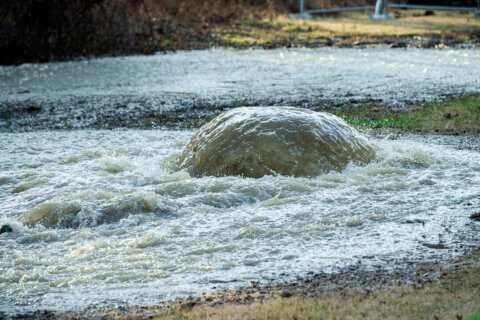Every third Saturday in September, the environmental group Ocean Conservancy organizes a cleanup event at D.C.’s Kingman Island Park on the Anacostia River.
Its their flagship event for the D.C. area’s International Coastal Cleanup Day, and last year more than 1,000 people helped pick up over 6,000 pounds of trash there.
This year, because of the coronavirus pandemic, there was no formal event. But organizers hope that won’t stop people from trying to make a difference.
“Fill a bag, even a grocery-sized bag makes a difference,” said Sarah Kollar, the outreach coordinator for Ocean Conservancy’s International Coastal Cleanup. “Even just on city blocks, all those storm drains, that water eventually leads to your local waterway.”
Those who grab some gloves and a mask and head out to do a cleanup somewhere can record what they pick up through the group’s CleanSwell app.
Last year, about 4.7 million food wrappers were picked up by people participating in cleanup events around the world, according to the organization.
For the first time ever, that surpassed cigarette butts — 4.2 million of those were picked up — as the most common type of pollution.
“The top 10 items collected globally all contain, or are made totally of plastic, so we’re really concerned here with plastic pollution,” said Kollar. “Plastics are the least recycled material item in the United States.”
She said long term, since plastics might break apart but don’t break down, there’s a concern about its impact on the food chain and fish in particular, which so many people around the world eat.
“Feels like every other day we’re seeing news of another whale that’s washed ashore with lots of plastic film and bags in its stomach. So we’re trying to avoid that where we can,” said Kollar.
WTOP was on Kingman Island for the 2018 cleanup event.








